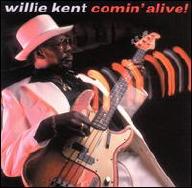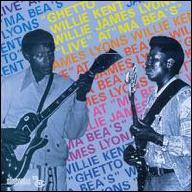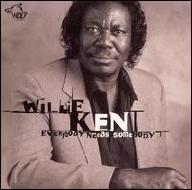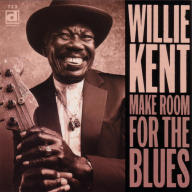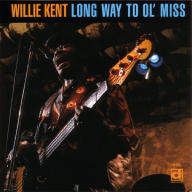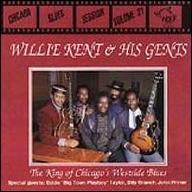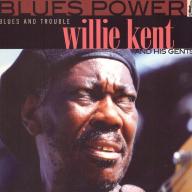Upon joining Little Milton's band in 1961, Kent's notoriety grew, and he became a steady presence at Kansas City Red's legendary "Blue Monday" parties. Kent was renowned as much for his talent as for his professionalism, a rare commodity in the blues world, and he regularly sat in with greats spanning from Muddy Waters to Little Walter. After leaving Little Milton, he tenured with Arthur Stallworth the Chicago Playboys as the 1960s came to a close, followed by stints in support of Hip Linkchain and Jimmy Dawkins. After returning from a European tour, Dawkins relinquished his headlining gig at the West Side blues club Ma Bea's Lounge to Kent, who for the first time assembled his own band, Sugar Bear the Beehives, with guitarist Willie James Lyons and drummer Robert Plunkett. Ma Bea's would serve as the setting for Kent's debut LP, 1975's live release Ghetto, and remained his home for over six years. In 1982, he returned to sideman duties, joining Eddie Taylor and contributing to his acclaimed 1985 swan song Bad Boy. After Taylor died that Christmas, Kent recruited his guitarist Johnny B. Moore and drummer Tim Taylor to form Willie Kent the Gents: as their fellow bluesmen adopted an increasingly slick sensibility inspired by commercial RB, the Gents championed the classic Delta 12-bar tradition, emerging as a favorite of blues purists at home and abroad.
After a series of heart ailments forced Kent to undergo triple bypass surgery in 1989, he spent his recovery examining his life and career, finally abandoning his longtime trucking gig in favor of pursuing music full-time. I'm What You Need, his first solo LP in 14 years, soon followed on the Big Boy label and proved the first in a flurry of releases that next included his Delmark debut, Ain't It Nice, which earned the Library of Congress Award for Best Folk/Blues Album of 1991. Kent also signed to the Austrian label Wolf for a pair of LPs, 1991's King of Chicago's West Side Blues and Live at B.L.U.E.S. in Chicago. With so many new records to his credit, it was inevitable that Kent finally earned the attention of blues fans and critics across the globe, and in 1995, he won the W.C. Handy Award for Best Blues Instrumentalist, Bass. Two years later, he earned the award again, and went on to claim the prize in nine consecutive years. Kent also notched five consecutive Most Outstanding Blues Musician, Bass honors from the magazine -Living Blues, and with 1998's Delmark release Make Room for the Blues took home Chicago's Album of the Year prize. In early 2005, Kent was diagnosed with cancer, but continued his busy live schedule in spite of chemotherapy treatments. He lost his battle with the disease on March 2, 2006, just a week past his 70th birthday. ~ Jason Ankeny, Rovi


